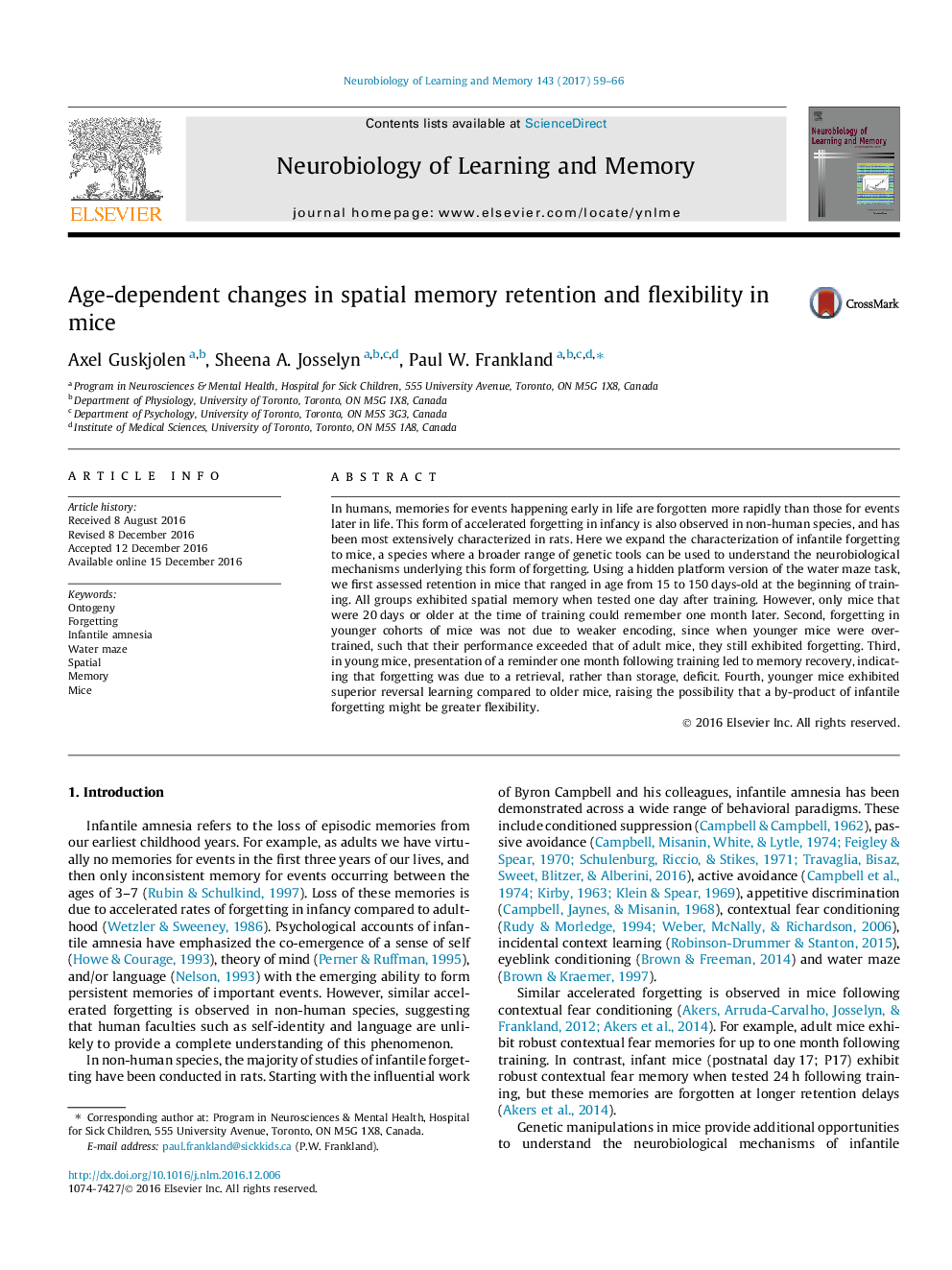| Article ID | Journal | Published Year | Pages | File Type |
|---|---|---|---|---|
| 5043155 | Neurobiology of Learning and Memory | 2017 | 8 Pages |
â¢Infant, but not adult, mice exhibited accelerated forgetting following water maze training.â¢Over-training does not exacerbate accelerated forgetting in infant mice.â¢Reminders can restore spatial memory in infant mice following forgetting.â¢Younger mice exhibit greater flexibility (reversal learning) compared to older mice.
In humans, memories for events happening early in life are forgotten more rapidly than those for events later in life. This form of accelerated forgetting in infancy is also observed in non-human species, and has been most extensively characterized in rats. Here we expand the characterization of infantile forgetting to mice, a species where a broader range of genetic tools can be used to understand the neurobiological mechanisms underlying this form of forgetting. Using a hidden platform version of the water maze task, we first assessed retention in mice that ranged in age from 15 to 150Â days-old at the beginning of training. All groups exhibited spatial memory when tested one day after training. However, only mice that were 20Â days or older at the time of training could remember one month later. Second, forgetting in younger cohorts of mice was not due to weaker encoding, since when younger mice were over-trained, such that their performance exceeded that of adult mice, they still exhibited forgetting. Third, in young mice, presentation of a reminder one month following training led to memory recovery, indicating that forgetting was due to a retrieval, rather than storage, deficit. Fourth, younger mice exhibited superior reversal learning compared to older mice, raising the possibility that a by-product of infantile forgetting might be greater flexibility.
